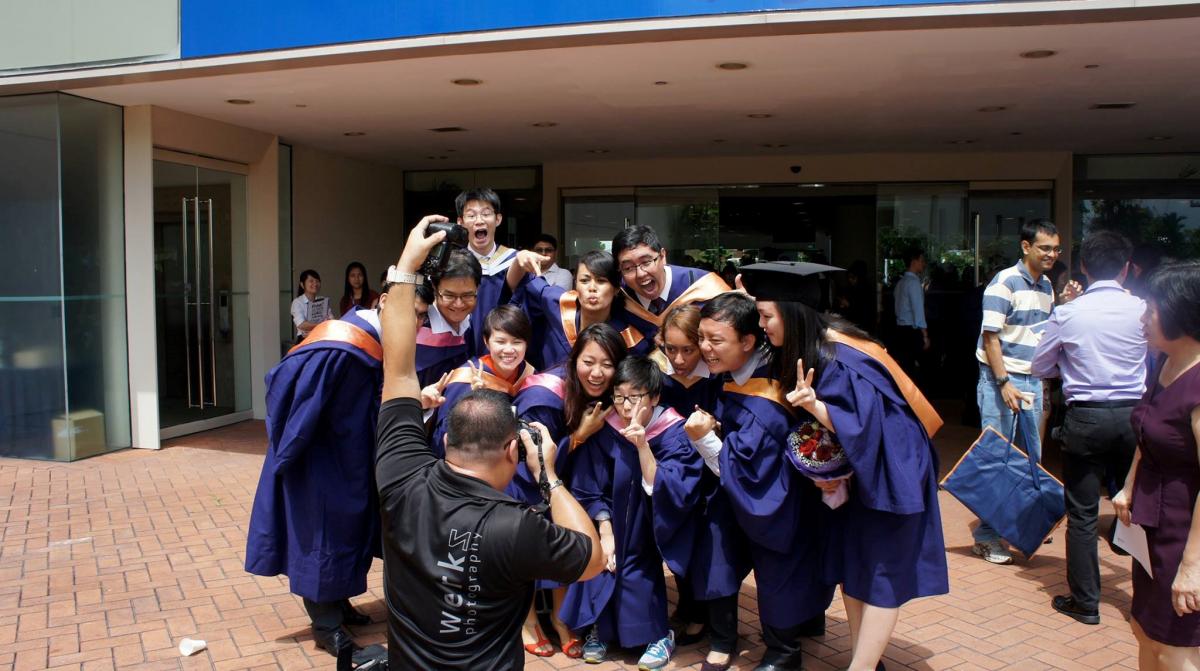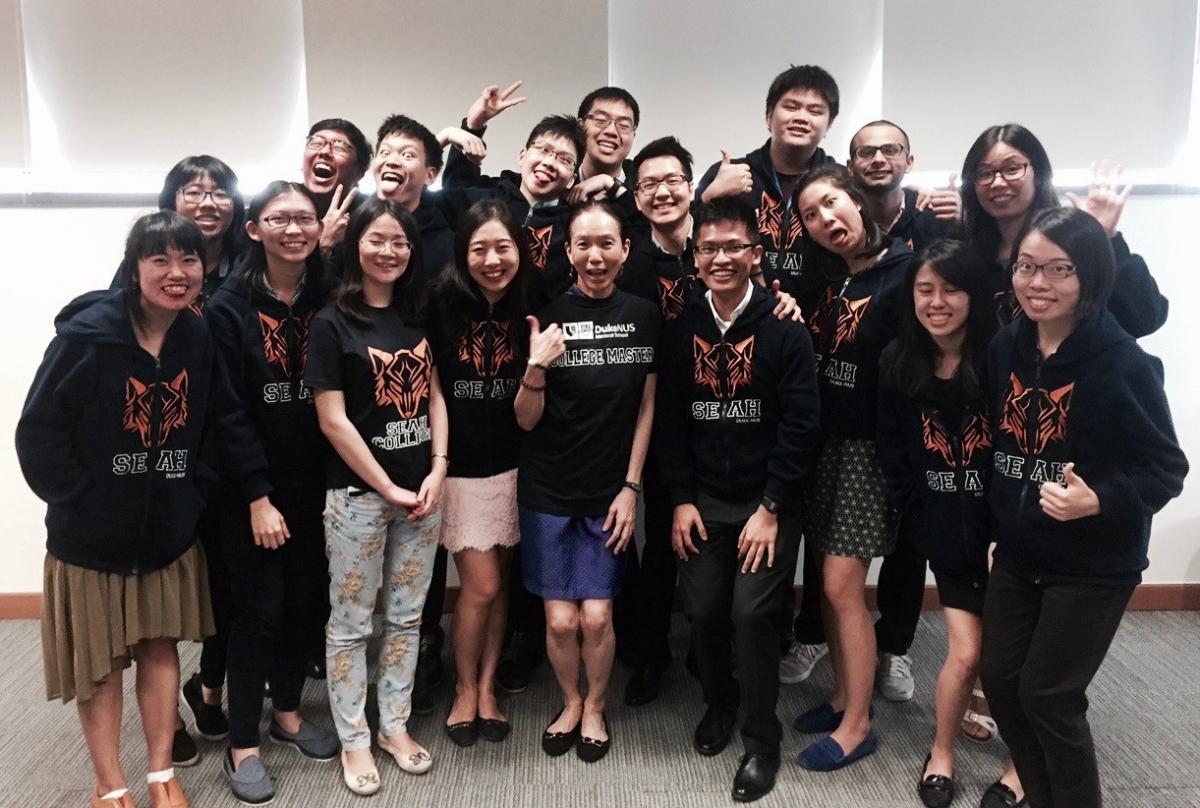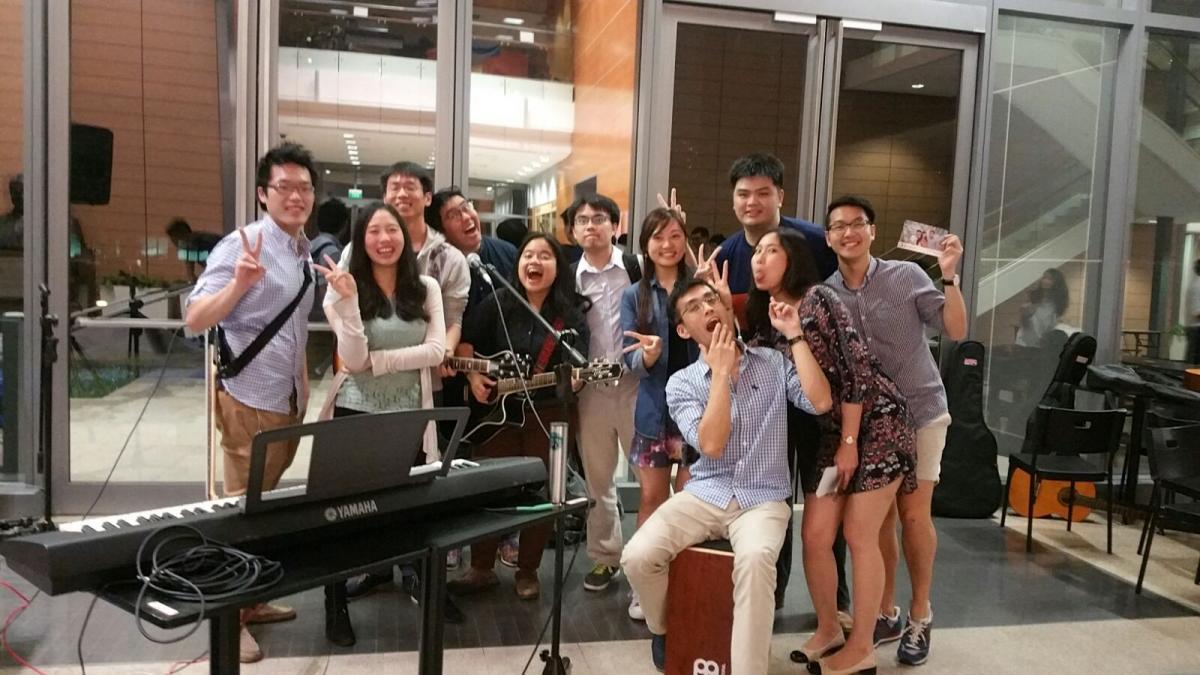Deciding to pursue medicine as a career is not a decision anyone takes—or should take, for that matter—without careful consideration. This is especially true if you are considering diving into medicine as a post-graduate student (read: old[er] person). And, perhaps, this may be an even more difficult decision to make if you come from a non-traditional (i.e. non-premed) background. My name is Haikel, a second year medical student, and I hope to provide you with some insight into why, and how, I went from psychology to medicine, and how it has helped me so far, so that it may possibly help you make a more informed choice (too long?—skip to the last paragraph).
Curiosity Killed the Cat
 My favourite co-curricular activity, pre-university, at least, was Indian Dance; it is now sleep.
My favourite co-curricular activity, pre-university, at least, was Indian Dance; it is now sleep.

My other favourite co-curricular activity was volunteering; one of the many projects we organised as High Five Youth was this roadshow to educate youth on dementia.
Somewhere midway through my final year in junior college, I realised (uh, and also my class tutor told me) that I had no long-term life goals. I have always been curious, which has led me to be interested in a great many things, often at the expense of my studies. I knew from my volunteer work at High Five Youth and Central Singapore Community Development Council that I really enjoyed interacting and helping others, and, from my off-tangent reading during lectures, that I also enjoyed biology and understanding what made people do the things they did. When the time came to pick a course for university, I decided that the overlap of my interests lay in the field of cognitive neuropsychology.
I commenced my undergraduate education at National University of Singapore hoping to graduate having read both psychology and biology. (Un)Fortunately, I also enrolled into the University Scholars Program, which led me down another path. It exposed me to an alternative approach to issues utilising multi-, and sometimes, inter-, disciplinary perspectives, which made me realise that I enjoyed behavioural science research. It was thus with great enthusiasm that I explored my thousand-and-one interests in local and international research labs across the various disciplines in psychology. When it came to my senior year, I had decided to write my honours thesis, supervised by A/P Konstadina Griva at the Faculty of Arts and Social Sciences, on the depression, anxiety, and quality of life impairments of persons undergoing peritoneal dialysis.
However, as I interacted with more healthcare professionals and individuals diagnosed with other illnesses, I began to realise that the many ways I thought I could help patients fell short of a solid understanding of the pathophysiology of their disease. This led me to consider the growing possibility of doing medicine, if only so I could help patients the way I think they should be helped: integrating a biopsychosocial framework that would facilitate motivation, adherence, and hopefully improvement. So, instead of immediately pursuing a PhD in Clinical/Health Psychology as I had originally planned, I graduated with a Bachelor of Social Science with Honours in psychology and accepted a job offer to work as a research assistant with A/P Rathi Mahendran at the Yong Loo Lin School of Medicine to further explore this growing curiosity.

Graduating with a Bachelor of Social Sciences (Psychology) from National University of Singapore with the other colourful individuals from University Scholars Programme.
The bulk of my time there was focused on research ranging from psycho-oncology, medical education, and gut microflora; however, I also had the opportunity to work alongside exceptional medical and allied healthcare professionals. After a year of close contact with patients and the inspirational people involved in their care, I was convinced that I wanted to pursue medicine as a career and applied to Duke-NUS. Because of my interest in research, I concurrently completed a Master of Science focusing on psycho-oncology and biostatistics, writing my thesis on depression, anxiety, and positive psychological resources in across the first year of persons diagnosed with cancer.
But Satisfaction Brought it Back
I was excited to begin medical school, but I realised very quickly that the knowledge that I acquired as a psychology major did not necessarily help me in the preclinical year. Medical school is undoubtedly tough, but tougher, I think, if one comes from a background where subject matters are somewhat more intuitive, and the basis of excelling is not tied primarily to rote memorisation and regurgitation. I found myself having difficulty transitioning from an environment focused on mental gymnastics to one with an emphasis on static weight-lifting. Further, my lack of any background biomedical knowledge, MCAT aside, put me at a disadvantage in processing the intense amount of material (which have already been condensed from two years to one).
 My team of six throughout the first year of medical school: we relied on each other for emotional, physical, and academic support.
My team of six throughout the first year of medical school: we relied on each other for emotional, physical, and academic support.

Even more support from the College Masters and fellow College buddies.
Fortunately, the curriculum at Duke-NUS and the amazing support of faculty and staff helped to facilitate this transition. Students are grouped into teams of 5-8 students, each with a different mix of young and old, locals and internationals, biological science majors and others, and learning in groups is highly encouraged. Faculty members are also cognizant of the intense curriculum, and the amount of material that needs to be digested within the short time frame, and are thus very open to feedback and suggestions from the student body. There is also an incredible amount of camaraderie between all students, and a very strong peer-teaching culture.
But it is not to say that a background in psychology is completely unhelpful. Academically, knowledge of specific domains of psychology (biological psychology, cognitive psychology, neuropsychology, and abnormal psychology) in particular helped facilitate my understanding in the Brain and Behaviour module (and perhaps even my own learning style). Familiarity with the sometimes pedantic approach to formulating arguments and the generally interrogative nature of the social sciences gave me drive to explore beyond the surface and obtain a greater understanding in certain concepts. Further, my background in research and familiarity with research methodology and statistics were also helpful in cementing the concepts of the Evidence Based Medicine module.
 Stress-relieving sessions with the Duke-NUS Jamband.
Stress-relieving sessions with the Duke-NUS Jamband.

The Jamband performing at the annual Row for Hope, organised this year by the National Cancer Centre Singapore and Oxford and Cambridge Society of Singapore.
I personally think that where my background and knowledge of psychology gave me the most advantage was in making me more psychologically minded. This understanding of human behaviour gave me more insight into my own behaviours and coping mechanisms and facilitated an appreciation, if not acceptance, of diverse perspectives of other individuals. In addition, this translated to more empathy for the patients during the Practice Course. In the wards, I found myself having a greater understanding of patients’ decisions and their barriers, and the significant emotional distress that patients encounter as a result of their illness, allowing me to better comfort them and provide advice to facilitate their healing.
After Considering Schrödinger's Cat, or Something Like That
Tl;dr: If you are already considering coming to medical school, perhaps nothing I say will deter you (we were all once wide-eyed and confident applicants). But if you have had no background in a medically-related field, I would suggest that you strongly consider your academic strengths and tolerance levels for the significant amount of intense lifelong learning. I would not be able to say if in a parallel universe I would be happier as a clinician-researcher psychologist; however, I have come to realize that this path is one that will simultaneously satisfy my curiosity and drive it to better serve my patients.
I am happy to speak with anyone interested in or considering pursuing medicine, and can be contacted at haikel@u.duke.nus.edu.
By: Haikel Lim, Class of 2019